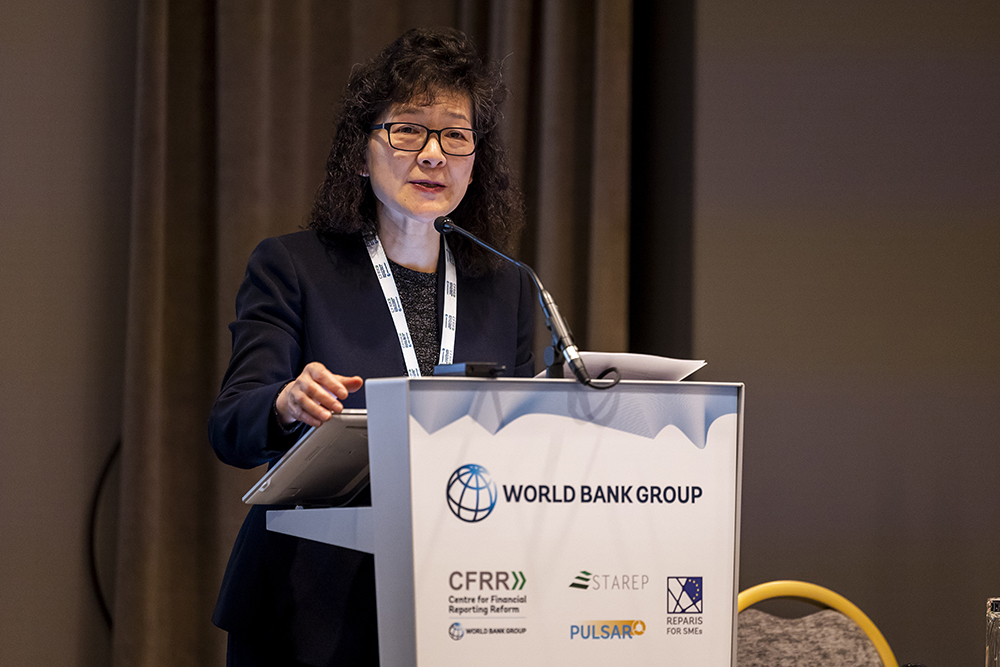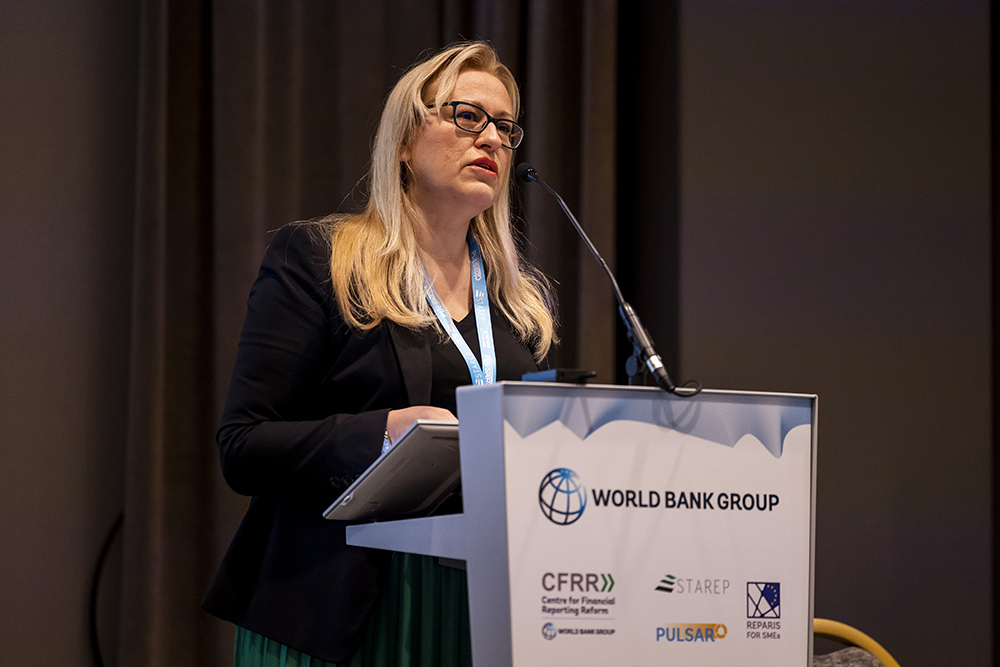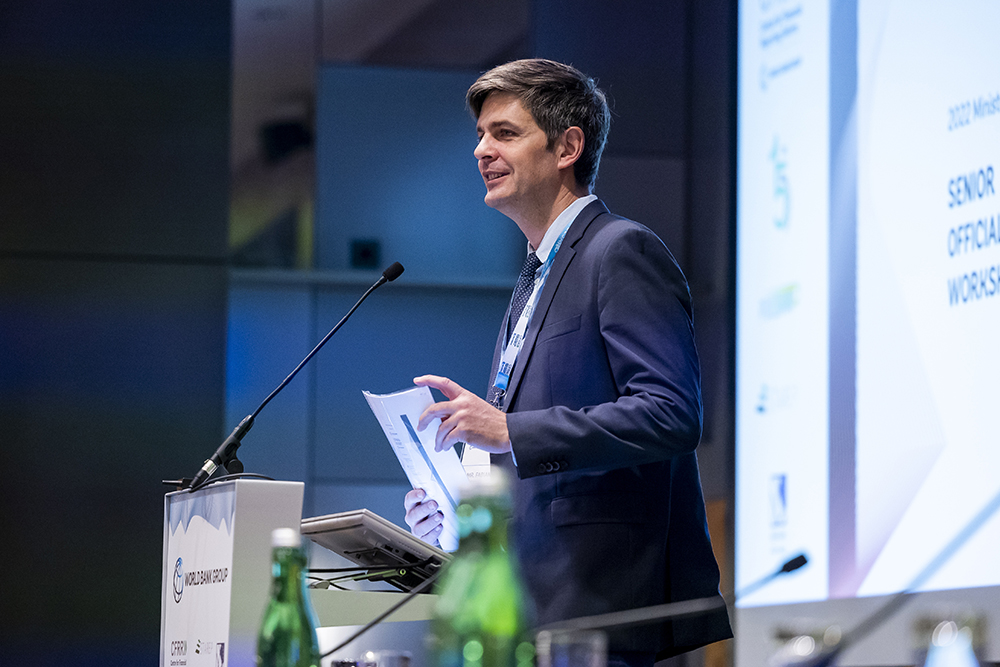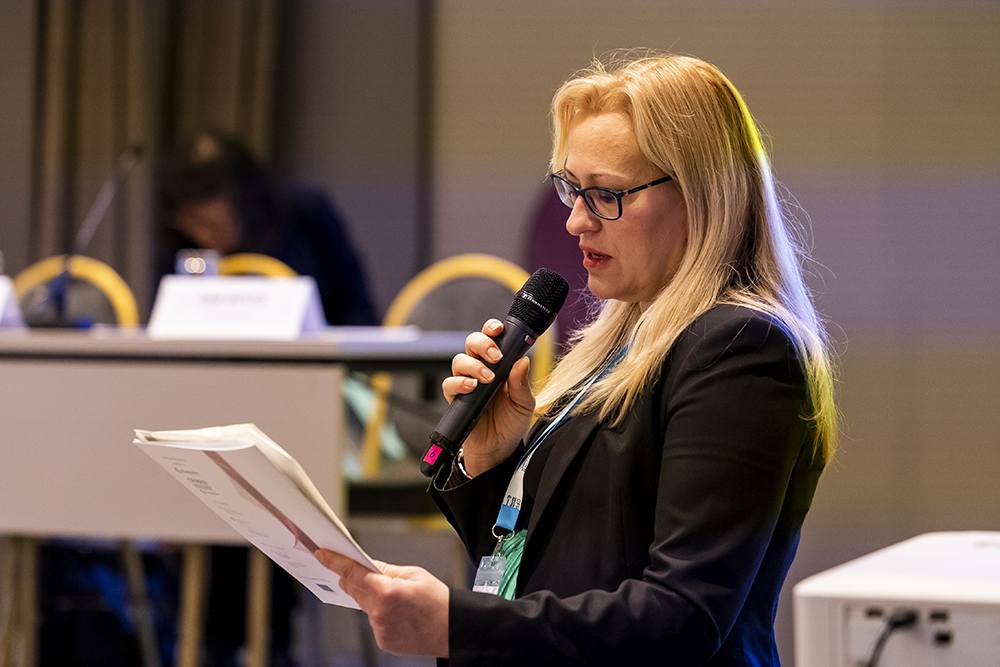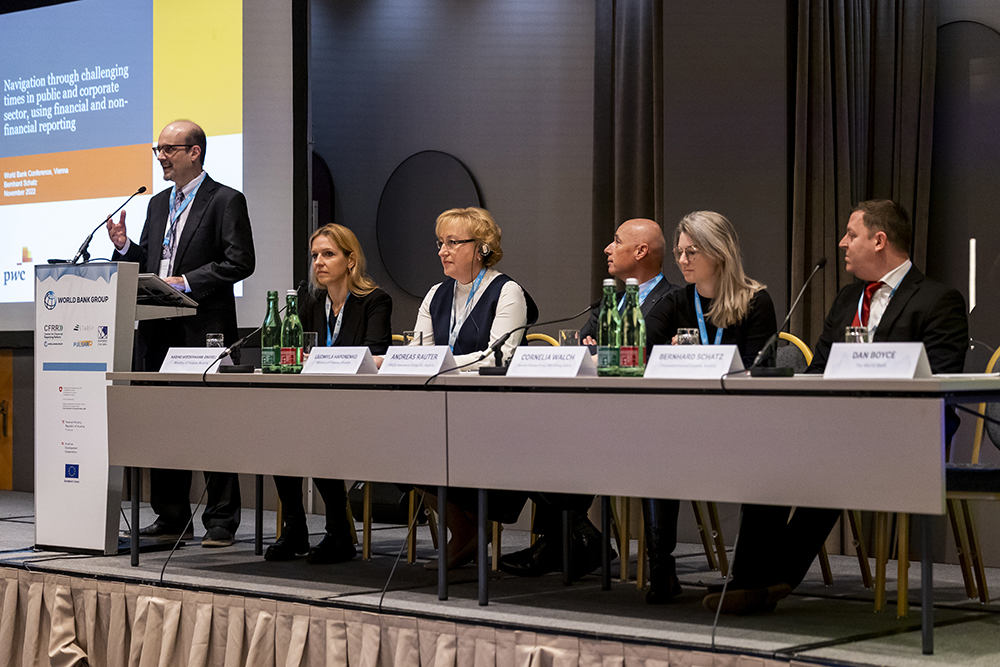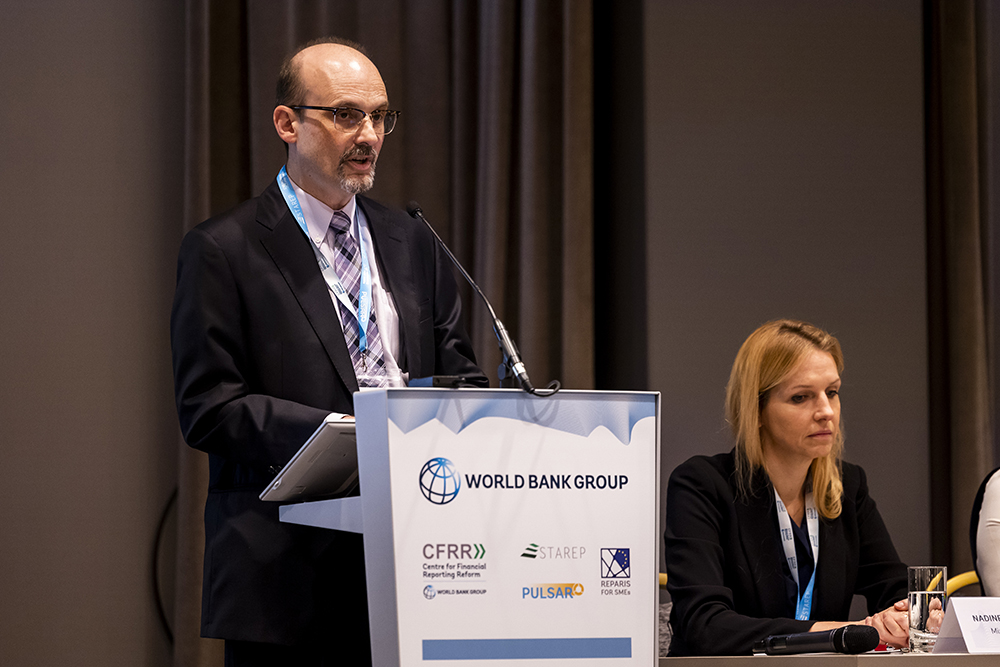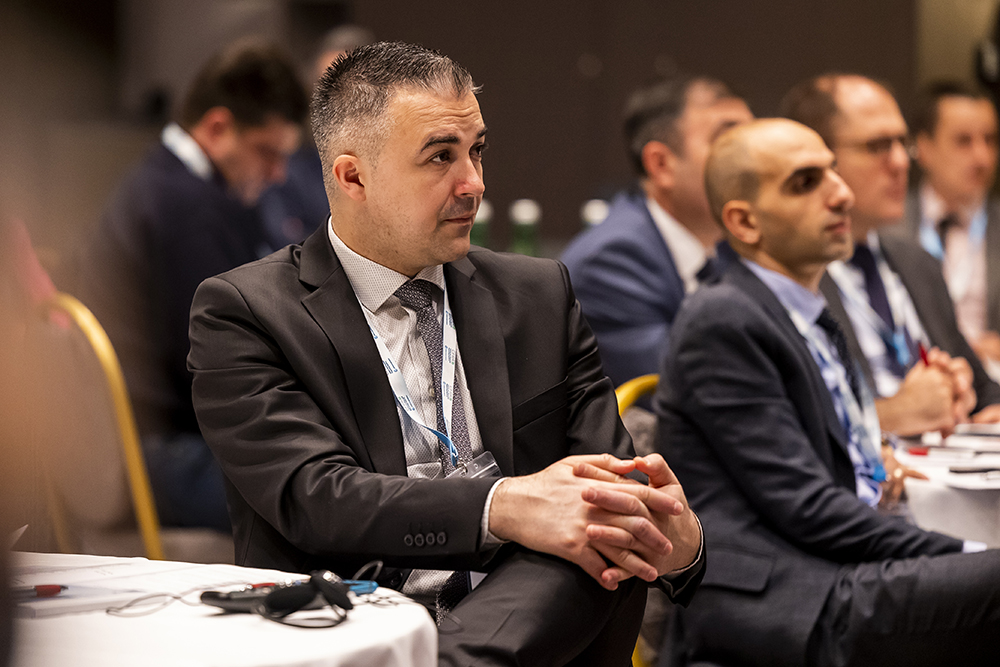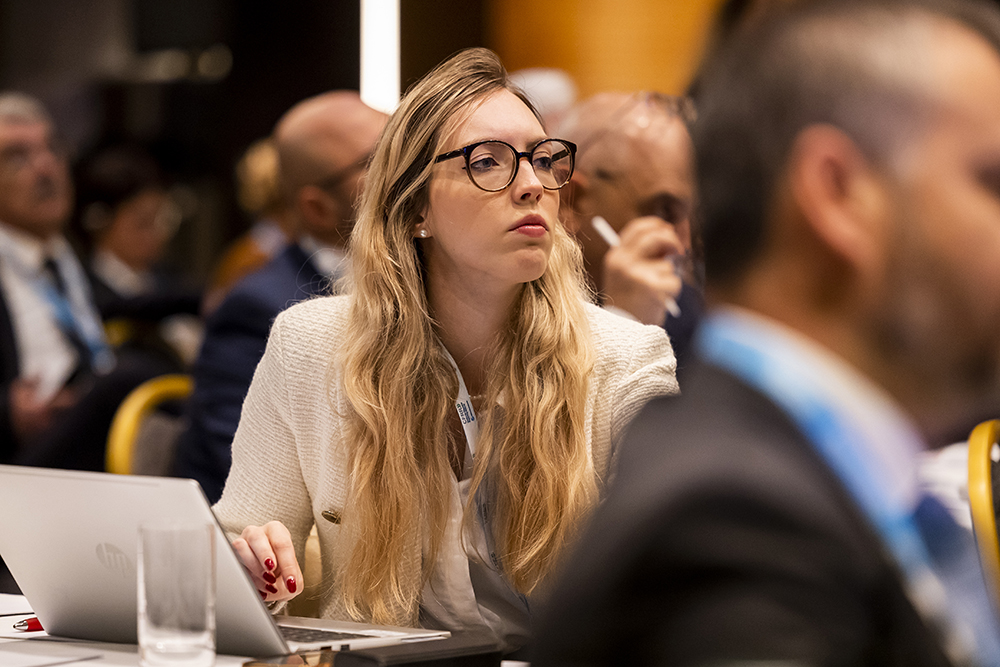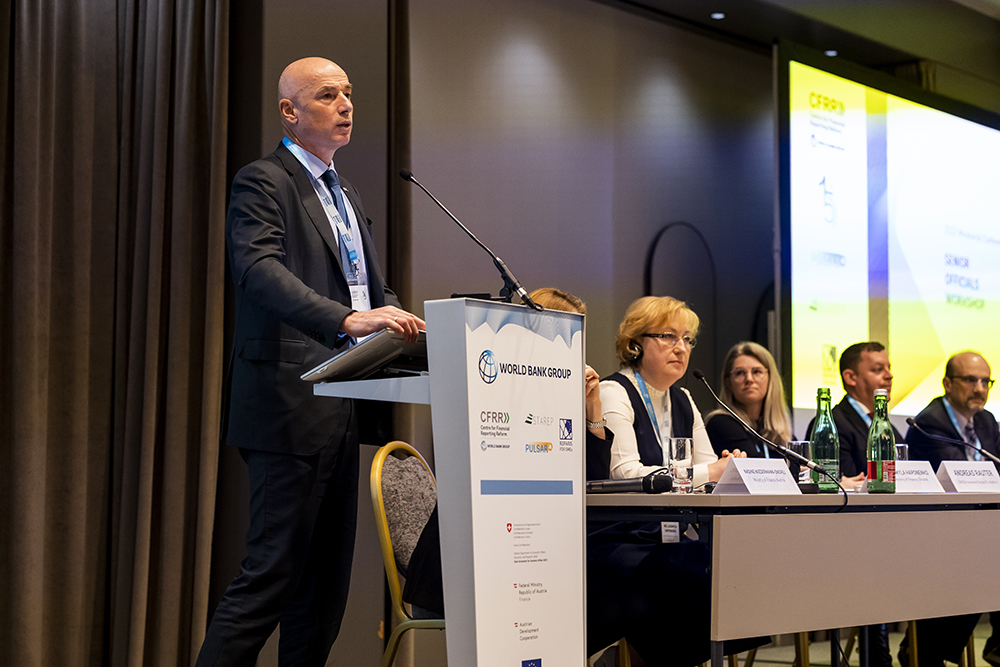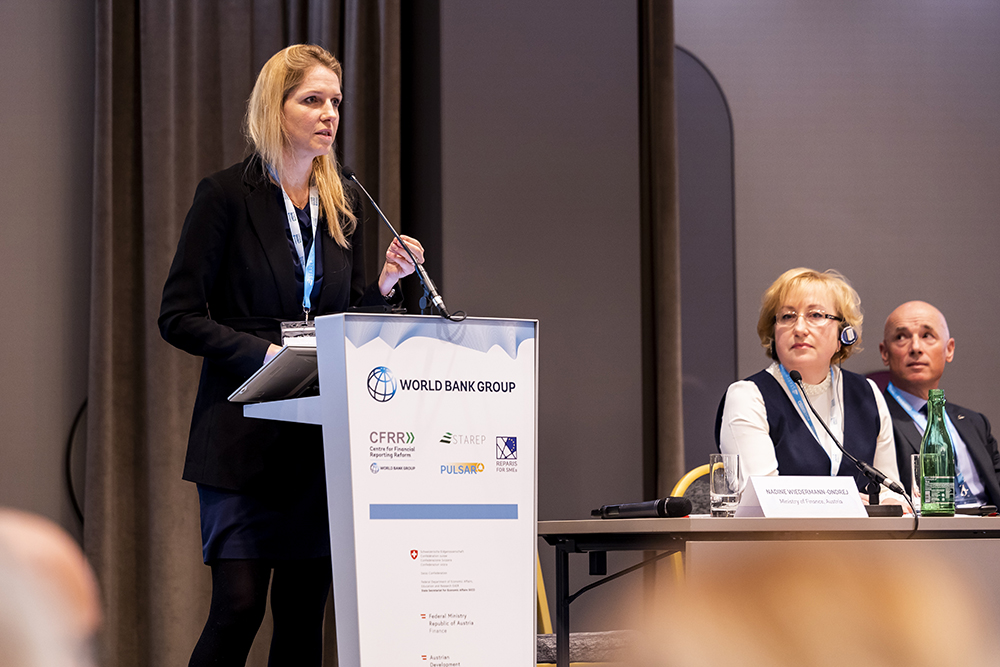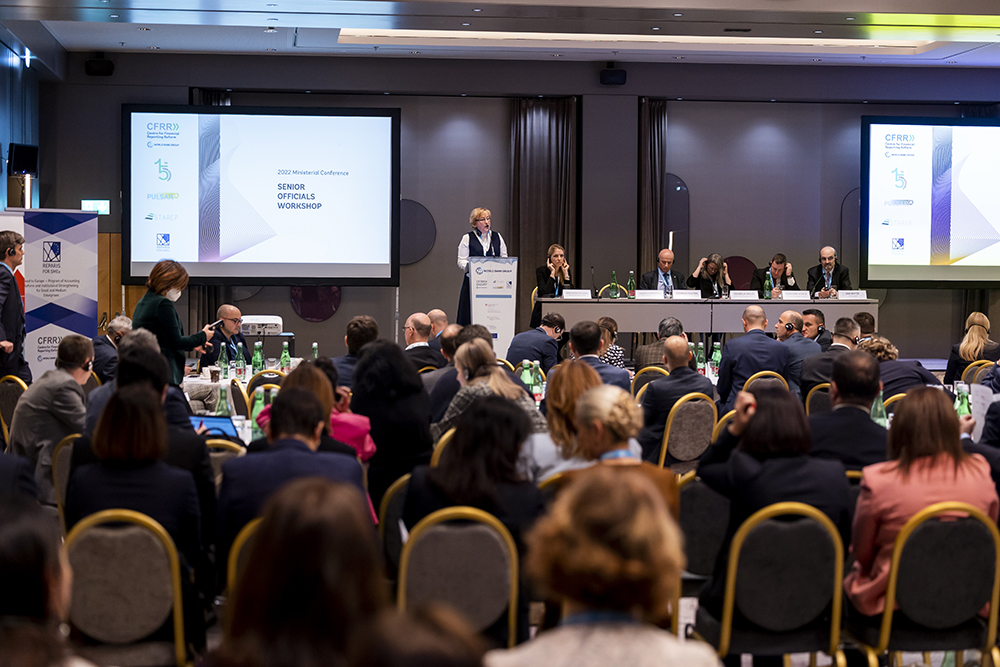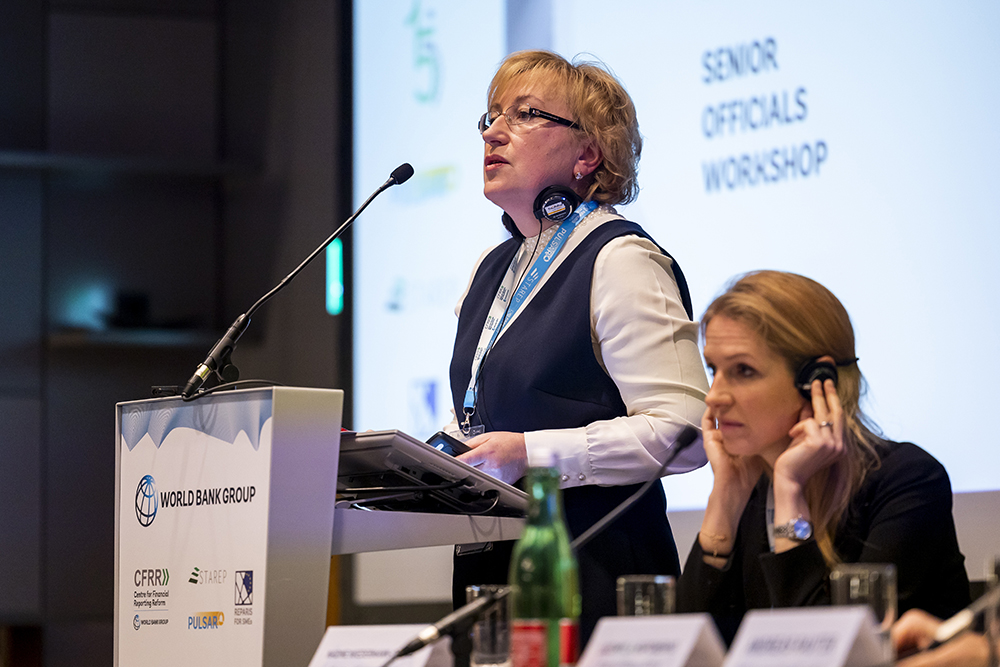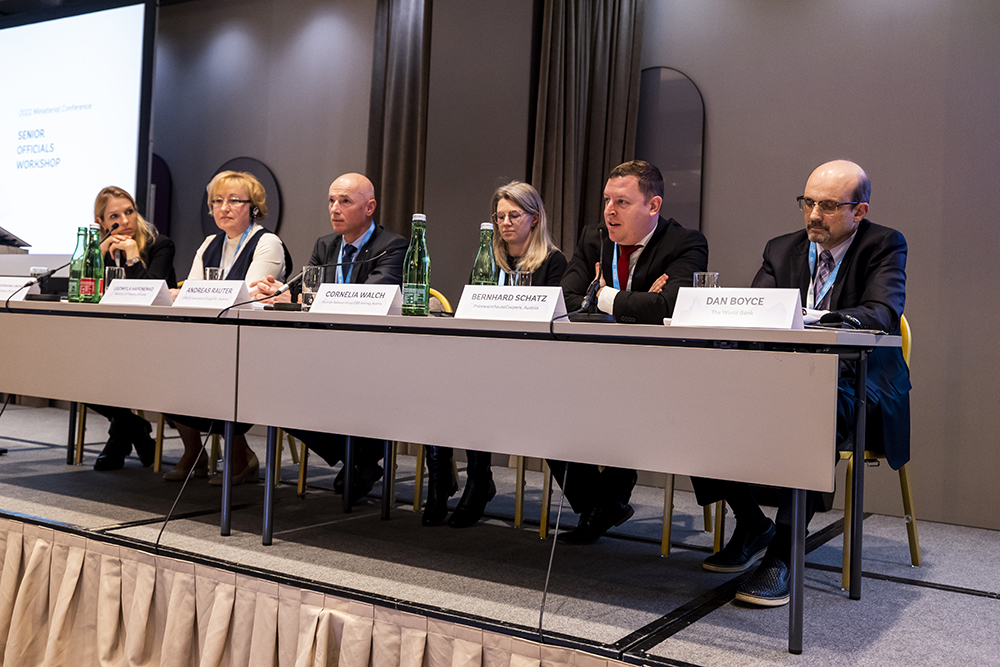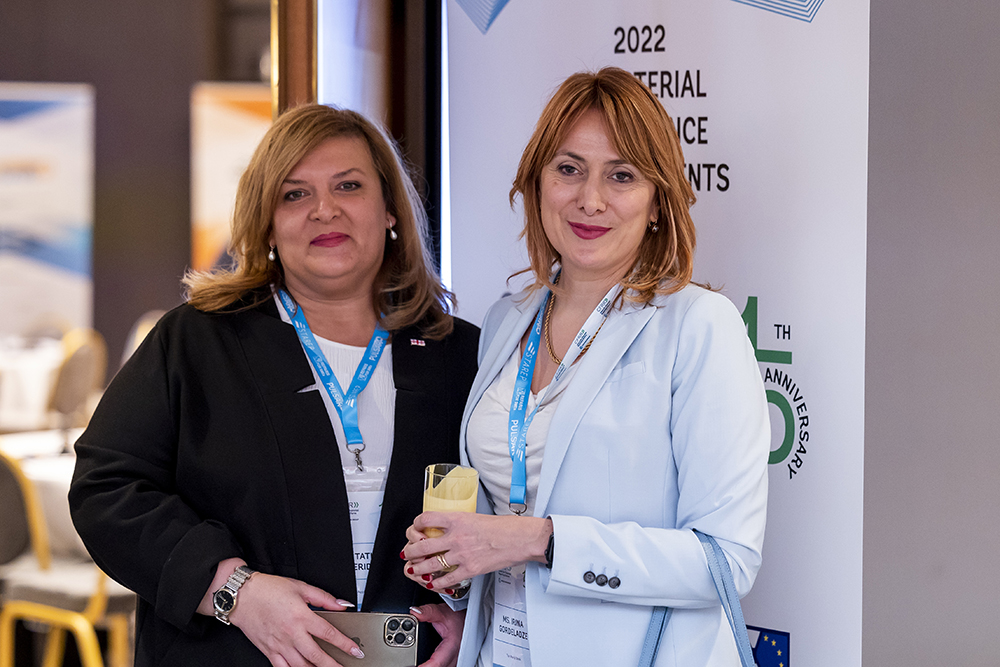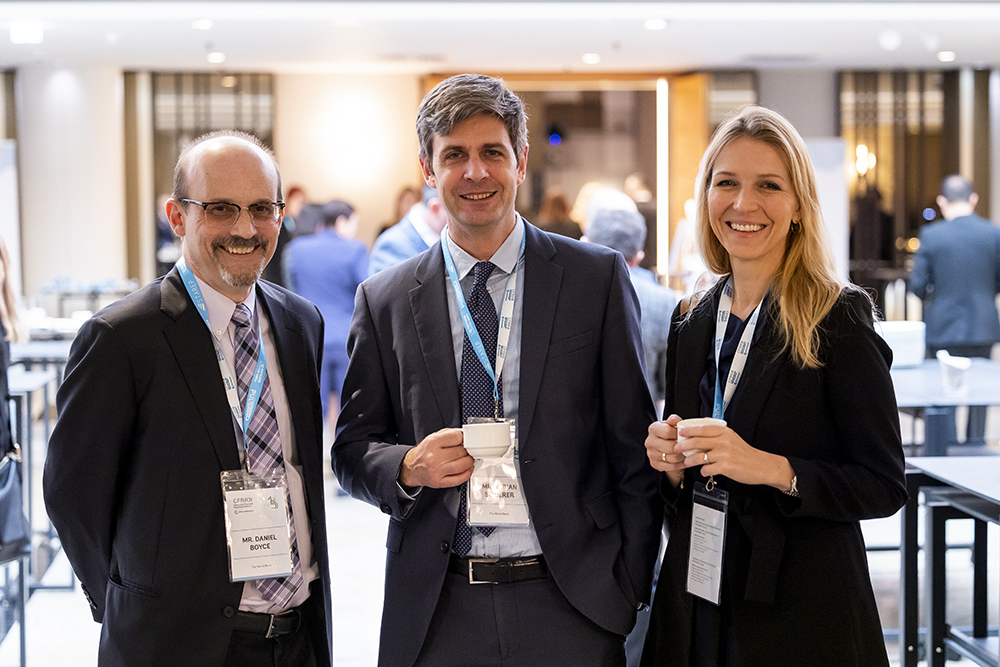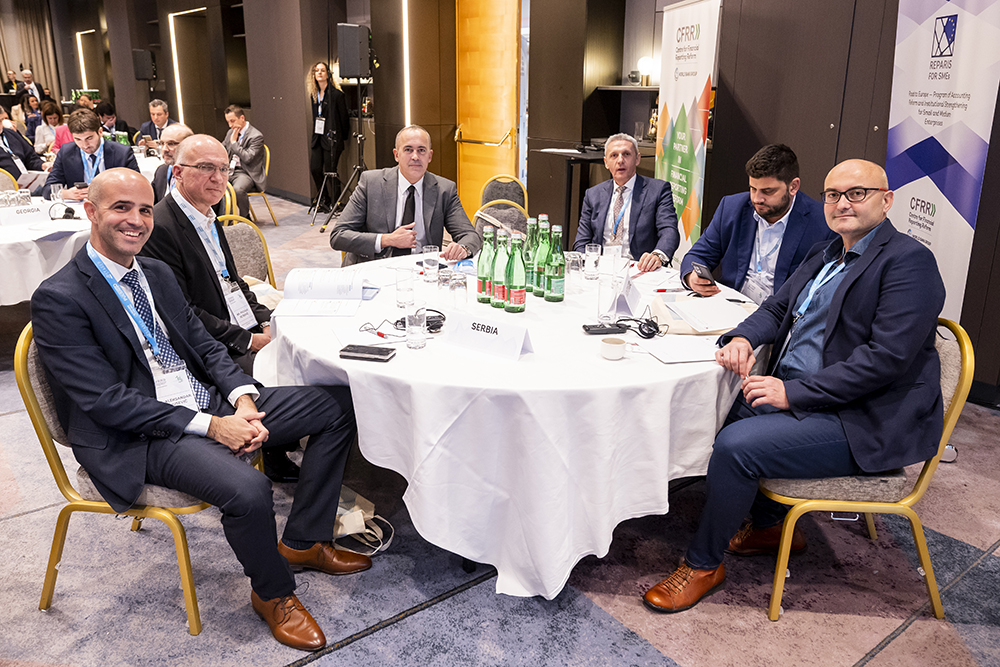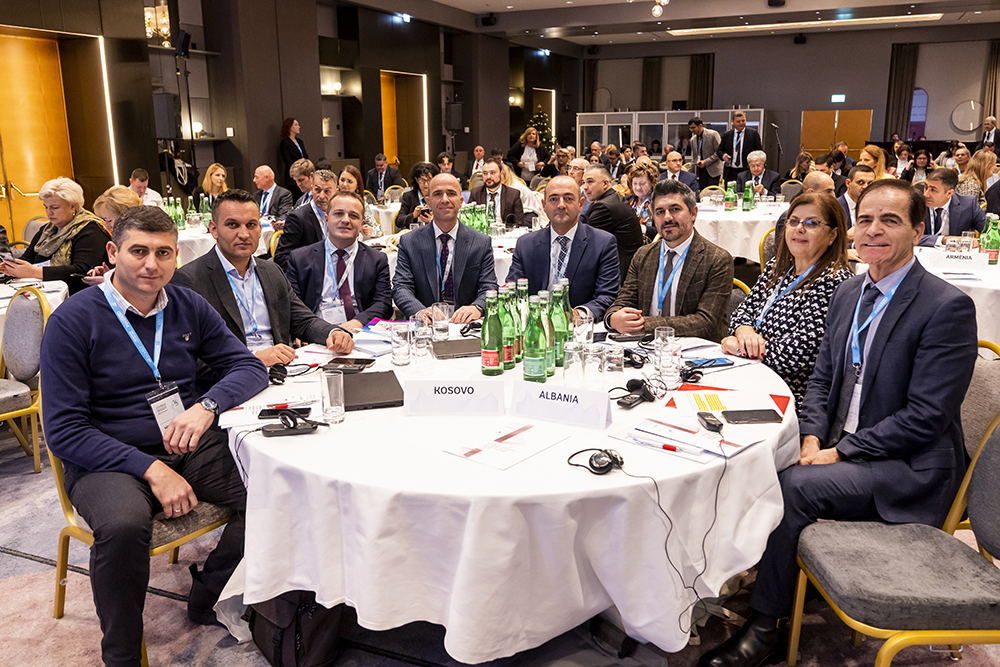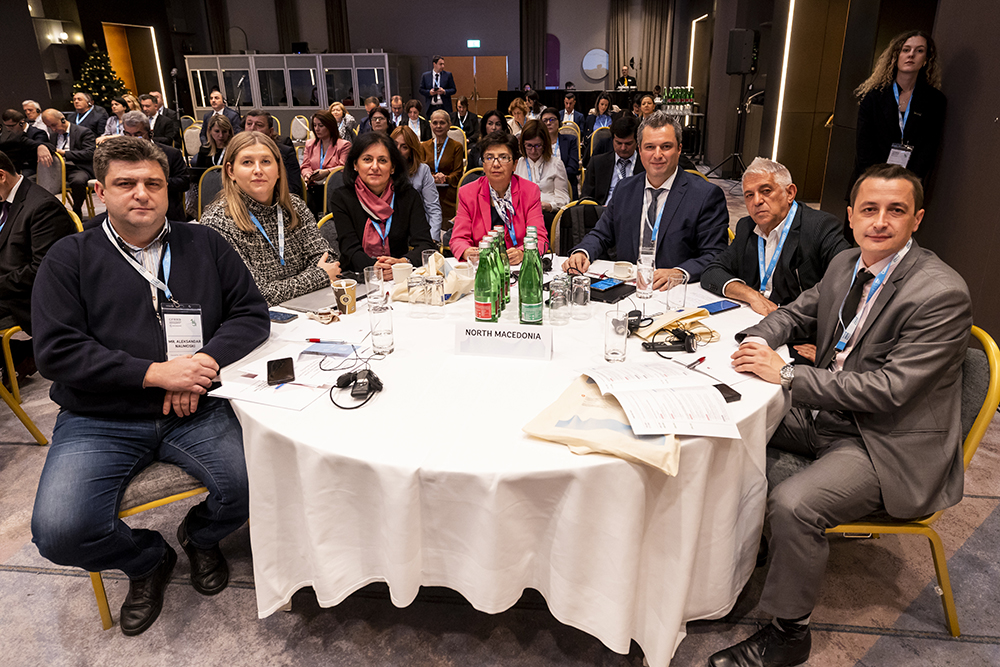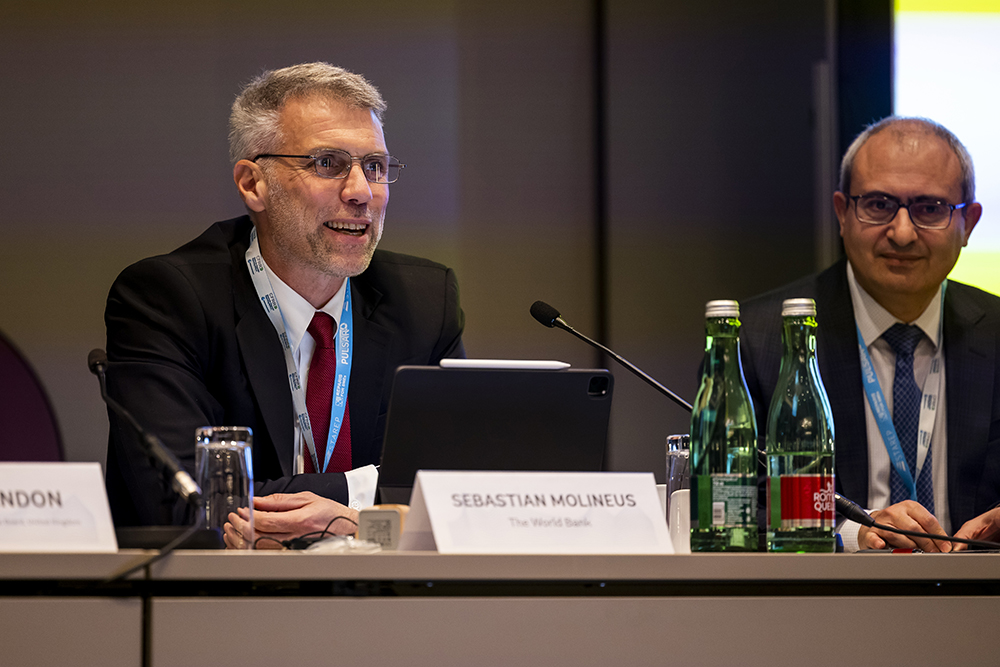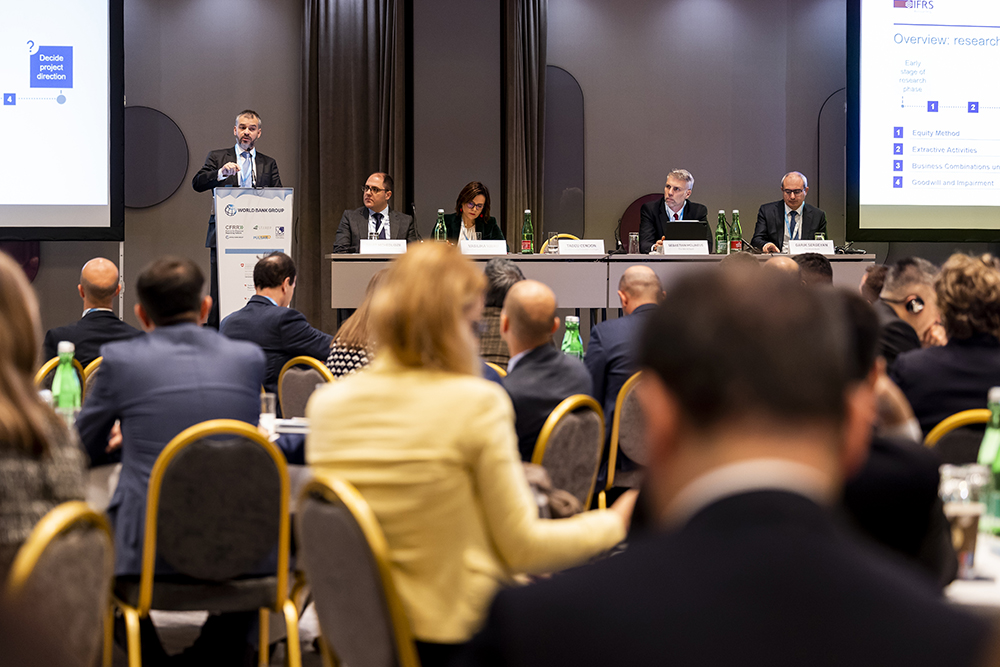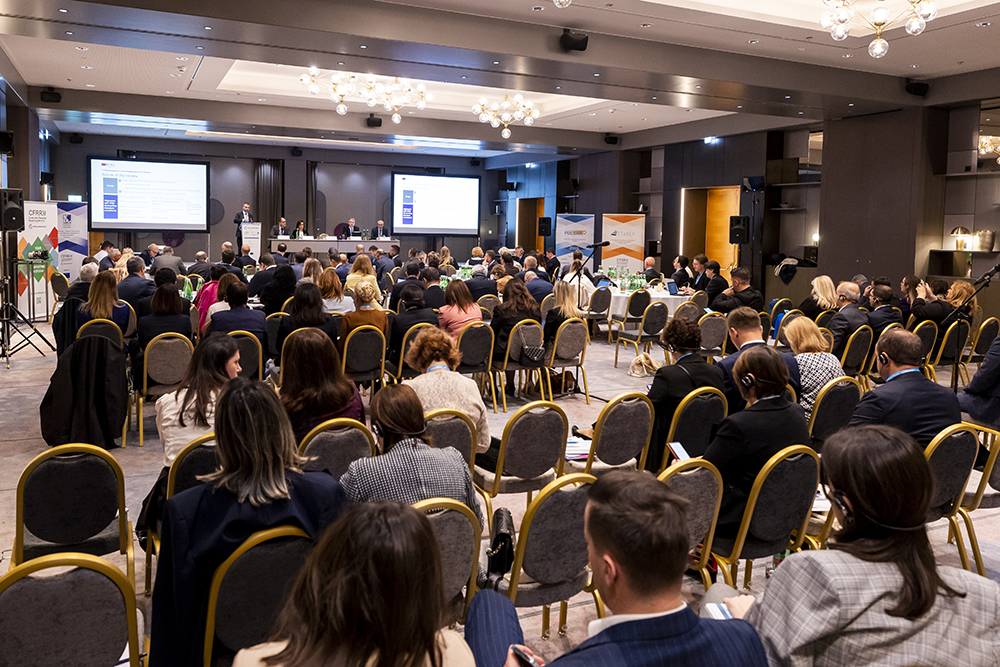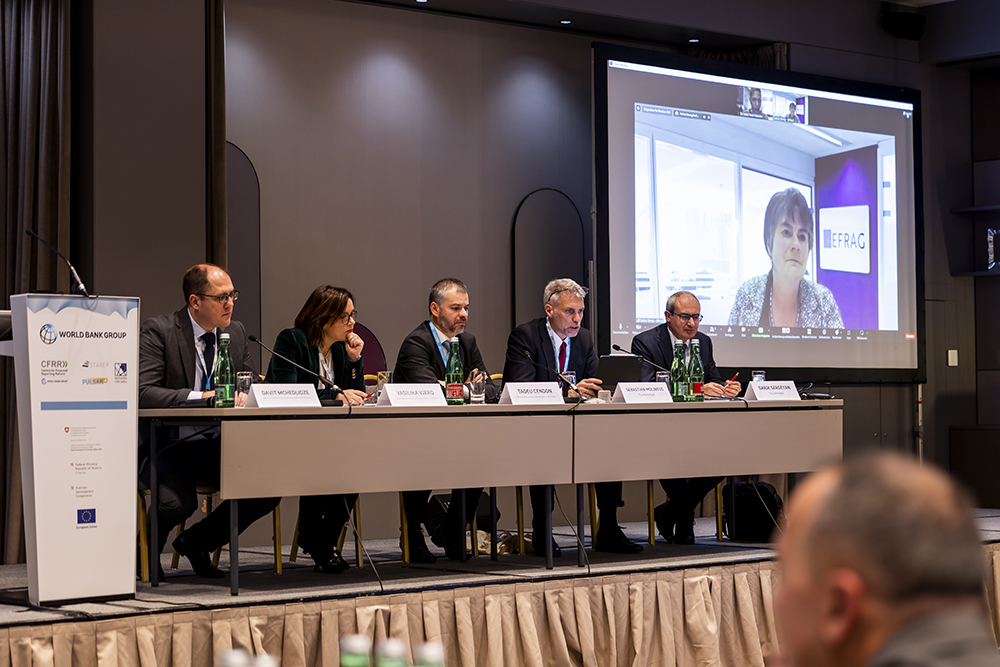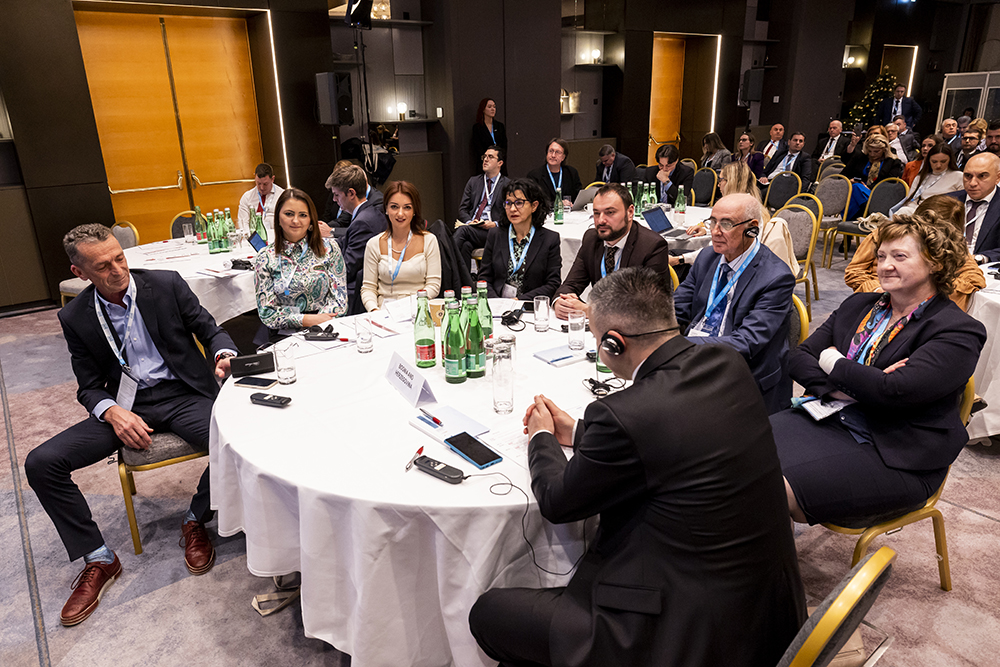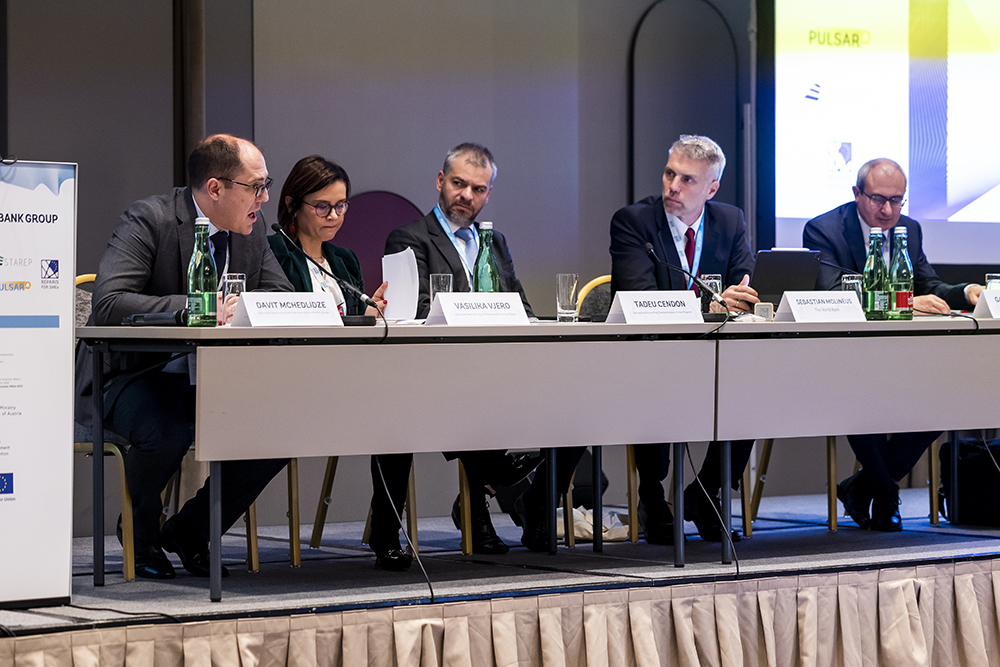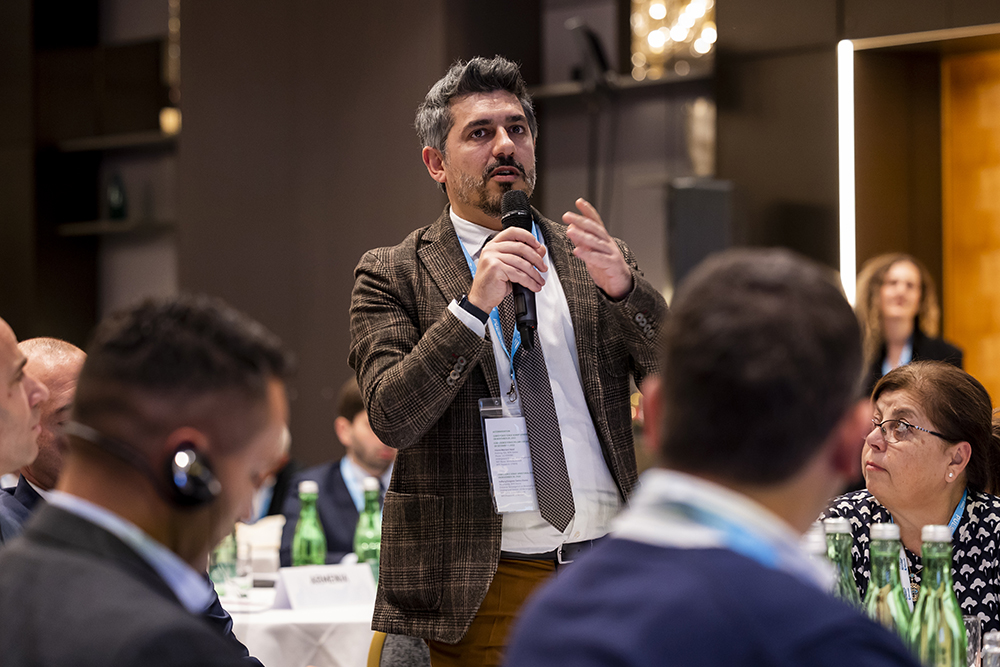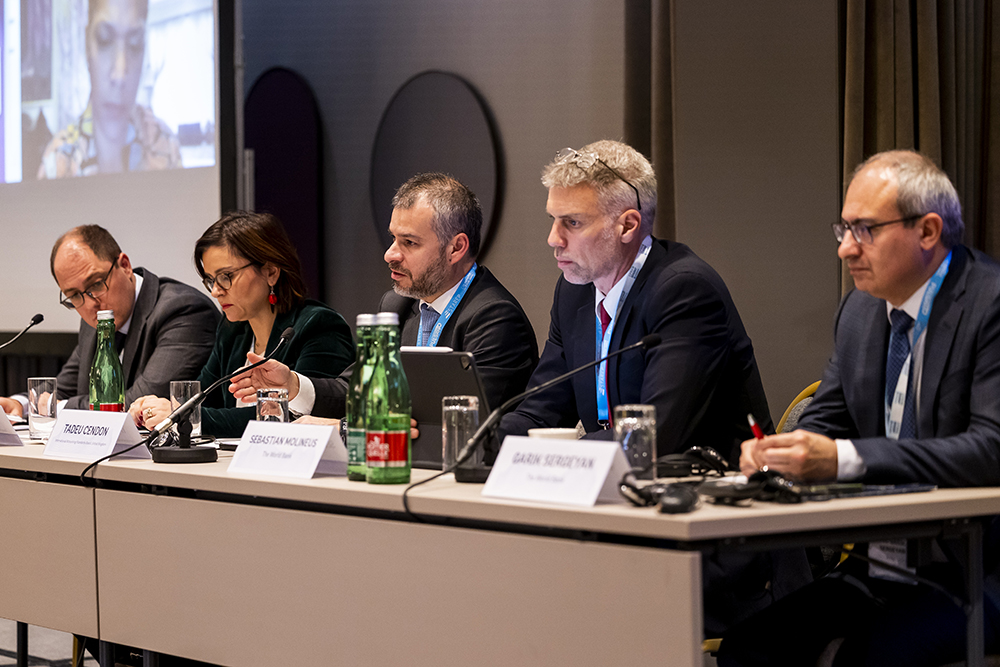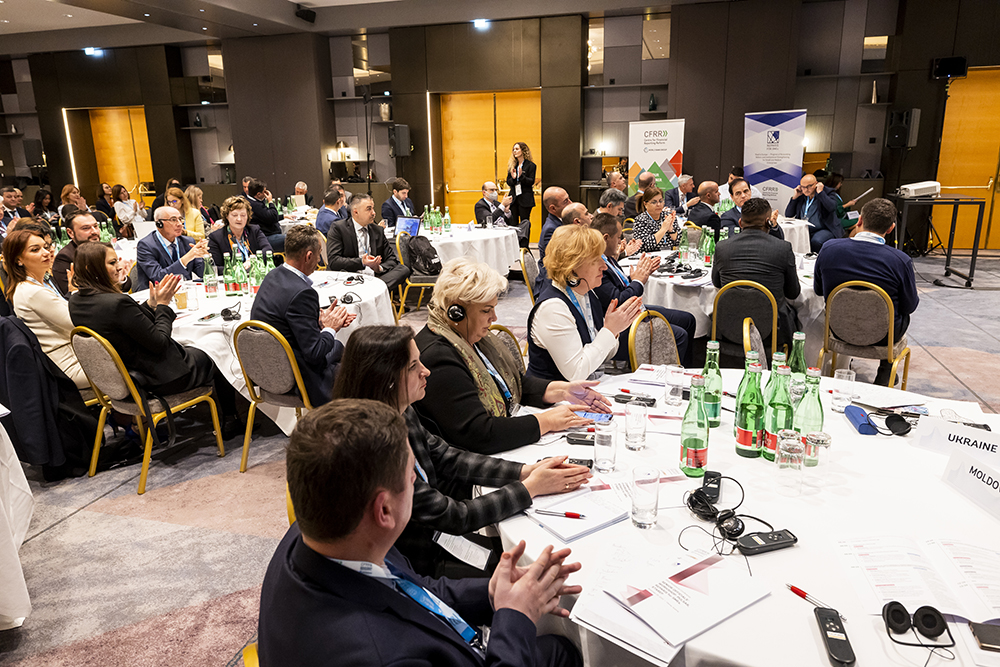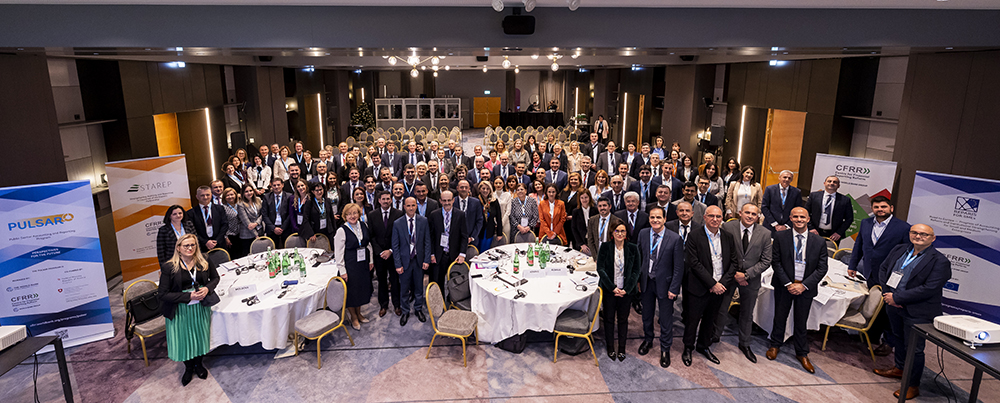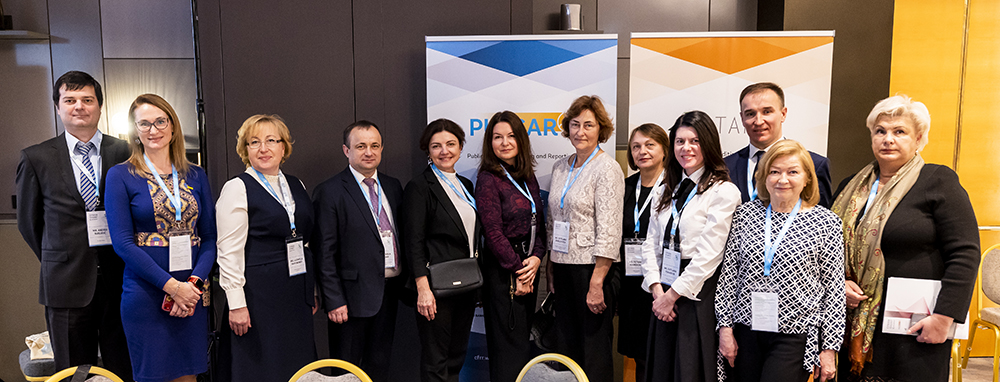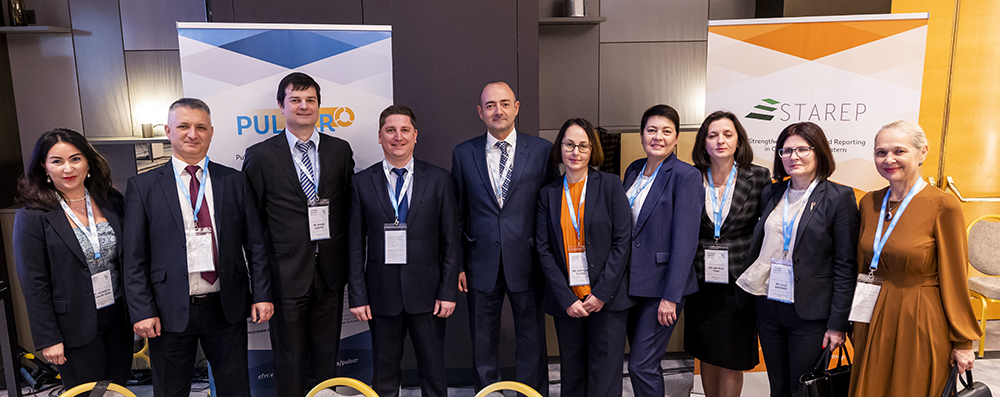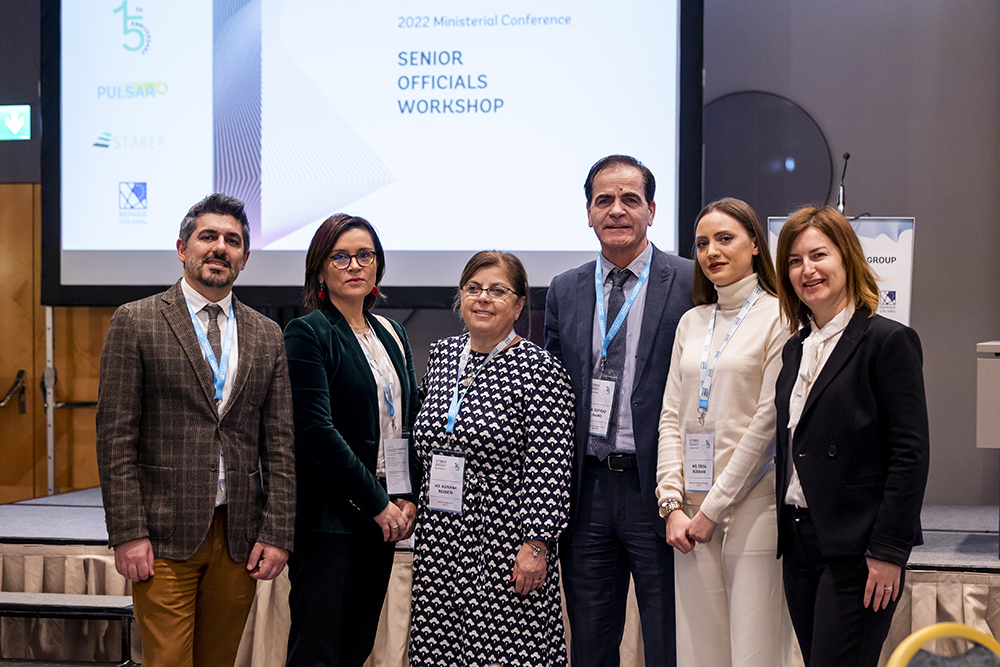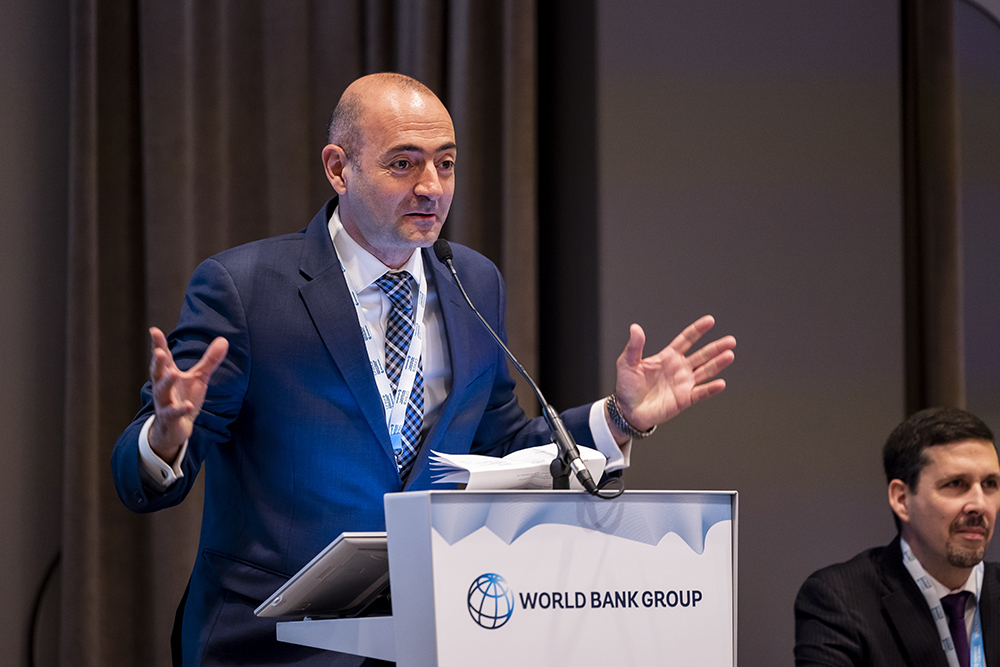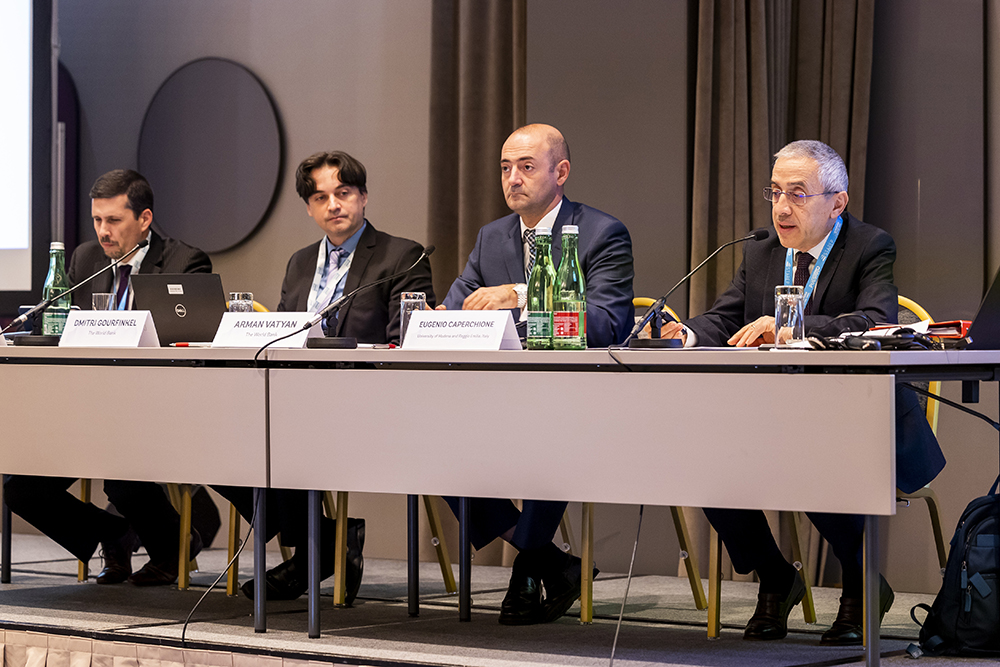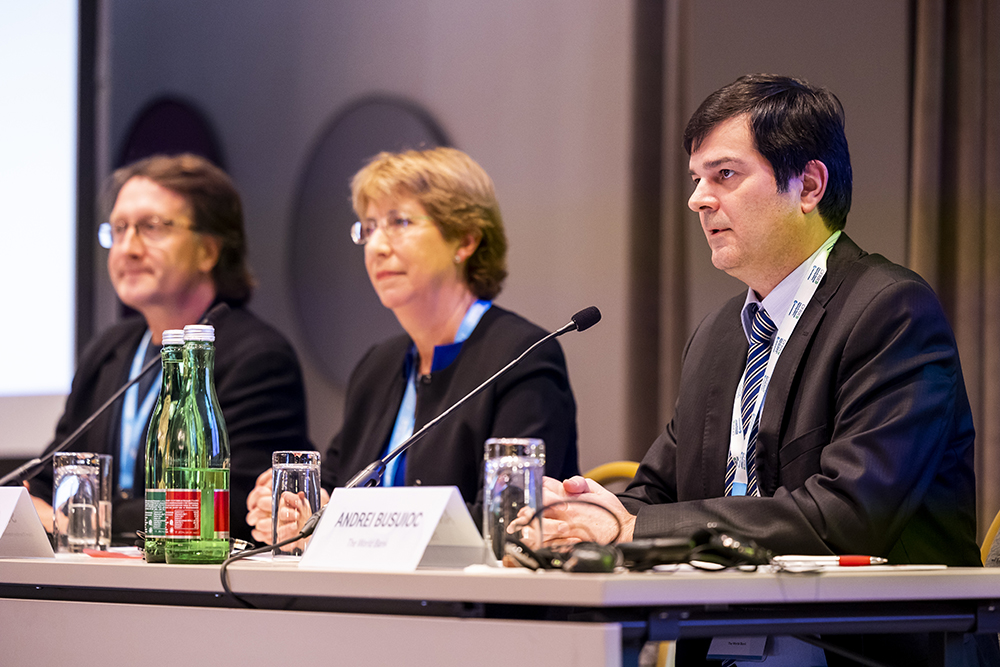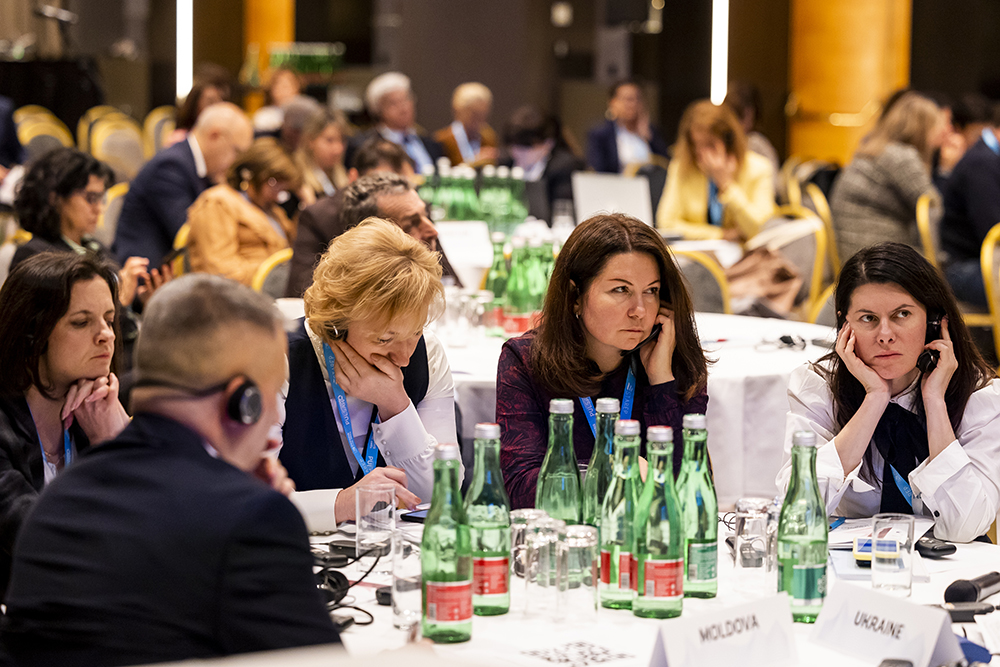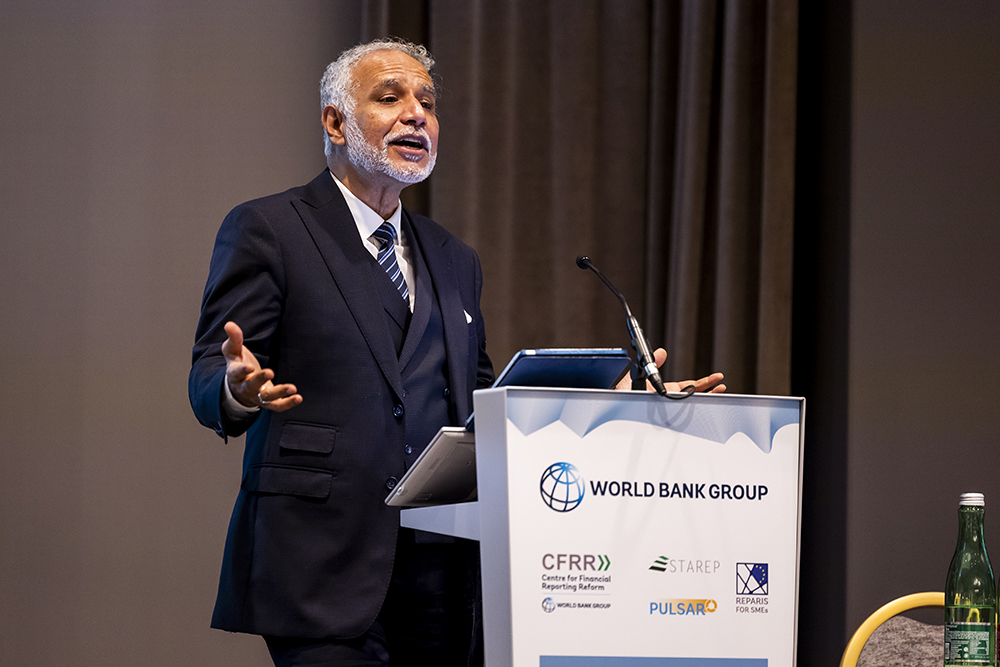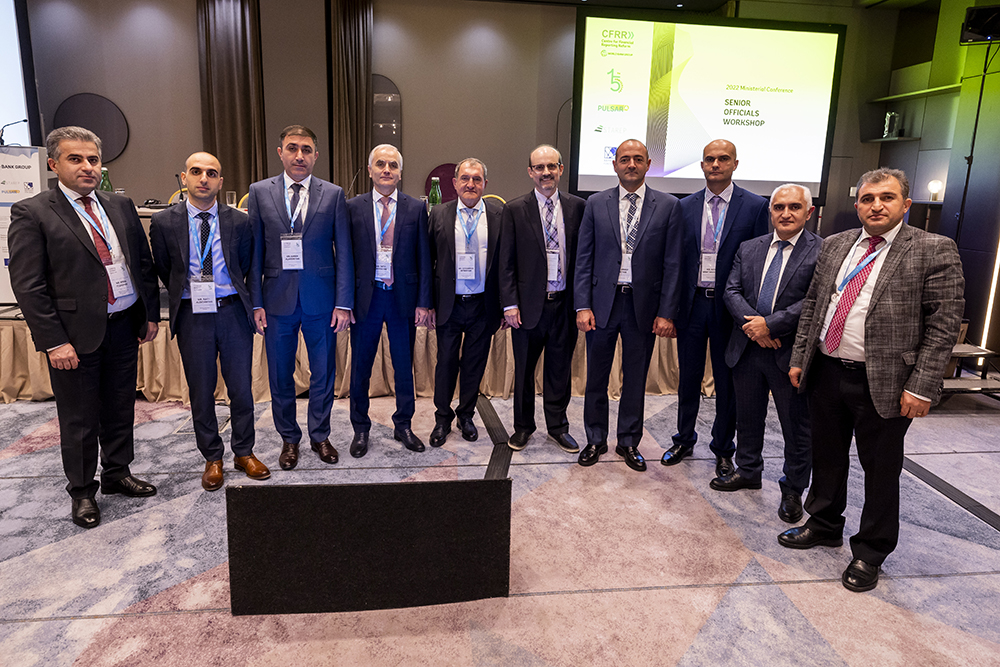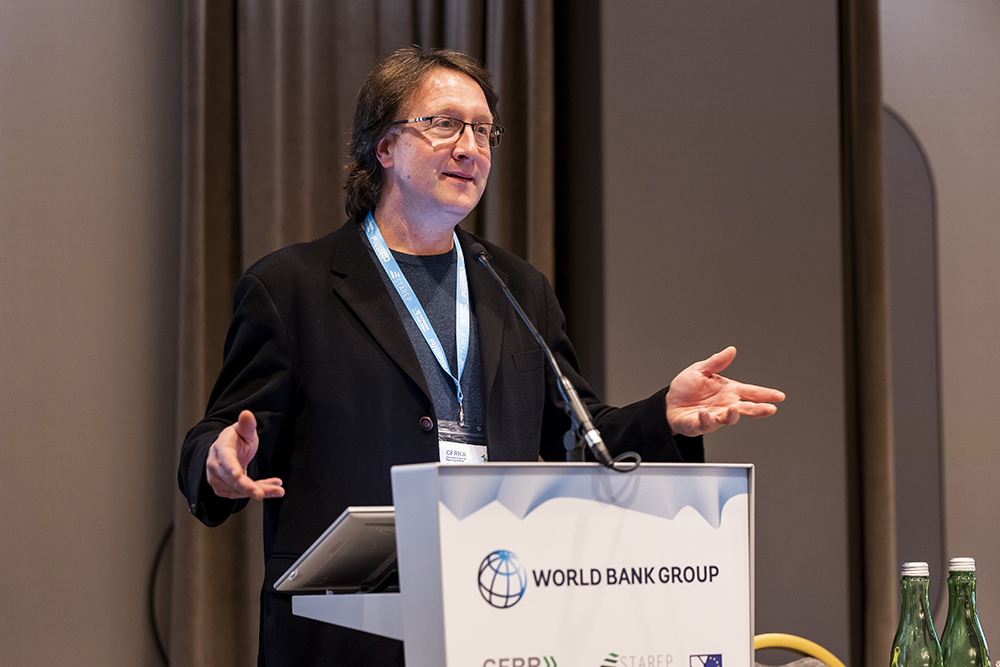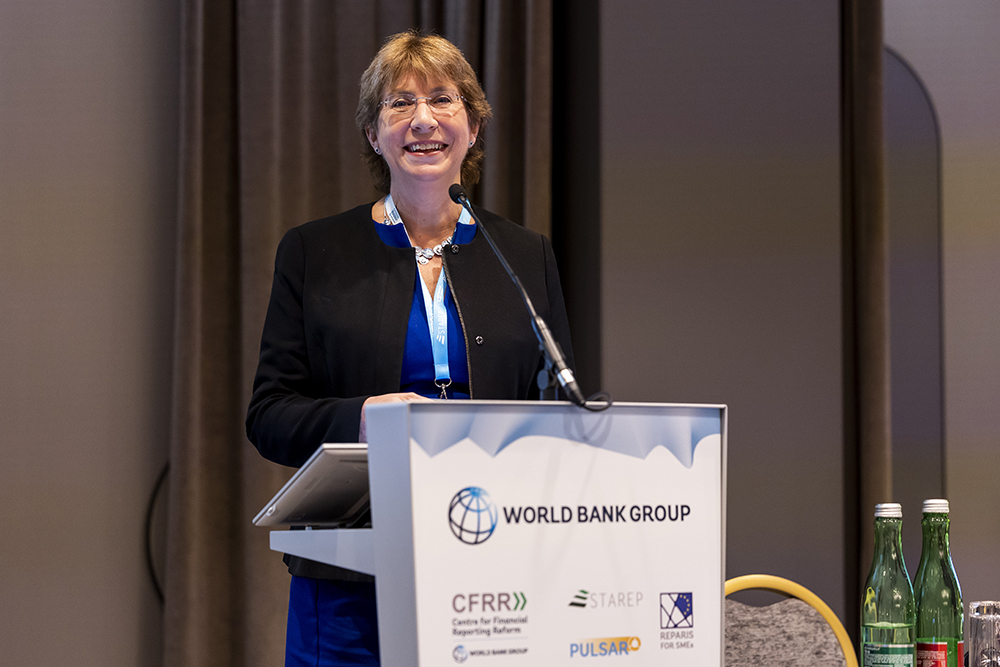A World Bank Centre for Financial Reporting Reform (CFRR) Senior Officials’ Workshop took place in Vienna, Austria on November 29, 2022. It convened more than 140 high-level delegates of key CFRR programs, including senior government officials and policy makers from program countries, international development partners, professional and academic speakers, and experts from key international and European Union (EU) institutions. The purpose of the event was to update policymakers on recent developments in financial and sustainability reporting and auditing in the private and public sectors; to sustain political support for related reforms; and provide an opportunity for networking and regional exchange of experience.
The first panel discussion “Navigating challenging times in public and corporate sectors using financial and non-financial reporting” set the tone for the event. These are difficult times and countries face complex and multi-layered challenges. Now more than ever we need to work together, cooperate to solve problems, and use the available tools to maintain and build trust. Effective reporting, both financial and non-financial, is one such important tool.
Sustainability reporting was an important theme in the Workshop. Financial markets and institutional investors are becoming more aware of and focused on environment, social, and governance matters and related risks. Investment decisions are increasingly assessed not only through a financial lens but also considering wider issues of impact and sustainability. The corporate sector already included sustainability reporting. The new EU sustainability reporting framework aims at standardization, taxonomy, integration with financial reporting, auditing, electronic machine-readable format, and harmonized sustainability reporting standards. It is important now for the public sector to catch up.
The workshop provided an overview of new developments in international standards in the field of financial reporting, auditing, and ethics. These aim to increase transparency, accountability, and contribute to the efficiency of economies by enhancing the quality and comparability of financial information. This enables investors and other stakeholders to make informed decisions, and thus improves the efficiency of capital allocation in the economy. As standard setting is a dynamic process, targetted at responding to changes in the business environment and stakeholders’ needs, updates on international developments help ensure country level standards are being regularly reviewed and timely changes implemented.
There were informative presentations from representatives of the International Accounting Standards Board (IASB), International Sustainability Standards Board (ISSB), International Auditing and Assurance Standards Board (IAASB), International Public Sector Accounting Standards Board (IPSASB), and International Ethics Standards Board for Accountants (IESBA) about recent developments and current initiatives in financial reporting, auditing, ethics, and sustainability reporting. This included that the IASB is in the process of updating the International Financial Reporting Standards (IFRS) for small and medium sized enterprises (SMEs) to reflect improvements made in full IFRS while keeping standards simple, relevant to SMEs, and faithful. The European perspective on the introduction of sustainability reporting was provided by the European Financial Reporting Advisory Group (EFRAG).
There was good discussion of the role of international organizations in promoting a common agenda, similar principles, and interoperability while adopting regional sets of sustainability reporting standards. It is important to ensure connected standard-setting, to facilitate a set of financial and sustainability-related disclosures that work as a package and can be subject of an audit or of an assurance review.
The workshop recognized the critical importance of the accountancy profession. It plays a major role in sustainability reporting, as the foundation of informed sustainability investment decisions. It is vital, therefore, that it is guided by the ethical guardrails of the IESBA Code in preparing, presenting, and assuring financial information and helping fight greenwashing. It was agreed that ethics are an immediate priority during this challenging time. Technology has the power to change the world we live in and the way we live, and, in this context, the audience learned about the IESBA Technology Initiative and how it will impact the accountancy profession from the ethics perspective.
Participants also discussed progress on public sector accounting (PSA) reforms. This included the benefits and drivers of accrual accounting in the public sector, the new PSA assessment (PULSE) framework, and the importance of continuous support to strengthening accounting education in the public sector.
The Senior Officials’ Workshop was held as part of events marking 15 years of CFRR activities. It included representatives of three CFRR-implemented programs: (i) The Public Sector Accounting and Reporting Program (PULSAR), (ii) The Road to Europe: Program of Accounting Reform and Institutional Strengthening for Small and Medium Enterprises (REPARIS for SMEs), and (iii) The Strengthening Auditing and Reporting in the Countries of the Eastern Partnership Program (STAREP).
Disclaimer: This webpage was created and maintained with the financial support of the European Union. Its contents are the sole responsibility of CFRR and do not necessarily reflect the views of the European Union.
